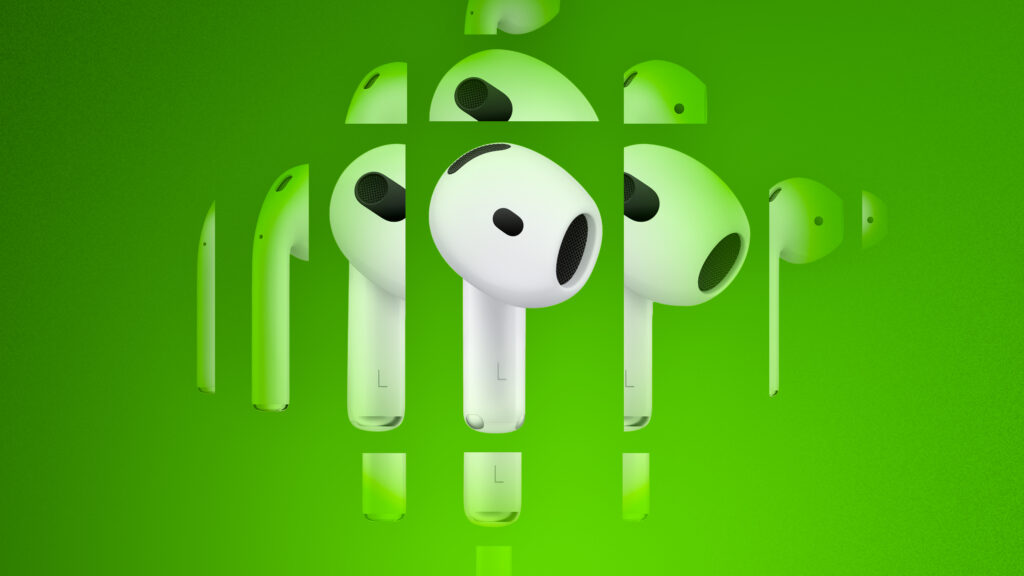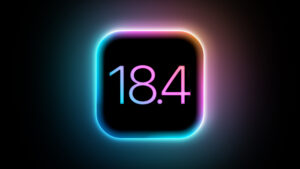AirPods 4 vs. Previous Generations Buyer’s Guide: All Upgrades Compared

Apple’s new AirPods are now available for pre-order. With the release of the AirPods 4 and AirPods 4 with ANC, Apple has made some significant improvements that could make a difference in your daily listening experience.
Key upgrades in the AirPods 4 include a more comfortable fit, improved sound quality with a new low-distortion driver, and enhanced features like Personalized Spatial Audio. For the first time in the standard AirPods range, the AirPods 4 offer optional active noise cancellation for an additional $50, providing a quieter and more immersive experience, especially in noisy environments.
This buyer’s guide breaks down those changes, compares them to previous generations, and helps you to decide which model best fits your needs. Whether you’re upgrading from the AirPods 2, AirPods 3, or deciding between the AirPods 4 models, this guide helps you to make an informed decision based on your priorities—whether it’s sound quality, fit, comfort, or advanced features like ANC. We’ll also explain who should consider upgrading to the latest generation.
AirPods
(Second-Generation, 2019)
AirPods
(Third-Generation, 2021)
AirPods
(Fourth-Generation, 2024)
AirPods With ANC
(Fourth-Generation, 2024)
EarPods-like design (2012) with long “stems”
AirPods Pro-like design (2019) with wider shape, shorter “stems,” and improved fit
Further improved, more comfortable fit with narrower shape
Further improved, more comfortable fit with narrower shape
Vent system for pressure equalization
Vent system for pressure equalization
Optical in-ear sensors
Skin-detect sensors
Optical in-ear sensors
Optical in-ear sensors
Inward-facing microphones
Inward-facing microphones
Inward-facing microphones
Tap sensors
Force sensors
Force sensors
Force sensors
Double-tap to play, skip forward, or answer a phone call
Press once to play, pause, or answer a phone call, press twice to skip forward, press three times to skip back, and press and hold for Siri
Press once to play, pause, or answer a phone call, press twice to skip forward, press three times to skip back, and press and hold for Siri
Press once to play, pause, or answer a phone call, press twice to skip forward, press three times to skip back, and press and hold for Siri
Sweat and water resistance (IPX4)
Dust, sweat, and water resistant (IP54)
Dust, sweat, and water resistant (IP54)
Custom high-excursion Apple driver
Redesigned high-excursion Apple driver based on AirPods Pro
New low-distortion driver and acoustic architecture
New low-distortion driver and acoustic architecture
Custom high dynamic range amplifier
Redesigned high dynamic range amplifier based on AirPods Pro
New high dynamic range amplifier
New high dynamic range amplifier
H1 chip
H1 chip
H2 chip
H2 chip
Bluetooth 5.0
Bluetooth 5.0
Bluetooth 5.3
Bluetooth 5.3
2.4GHz connectivity
2.4GHz connectivity
2.4GHz and 5GHz connectivity
2.4GHz and 5GHz connectivity
Adaptive EQ
Adaptive EQ
Adaptive EQ
Spatial audio with dynamic head tracking
Spatial audio with dynamic head tracking
Spatial audio with dynamic head tracking
Active Noise Cancellation
Transparency mode
Adaptive Audio
Conversation Awareness
Personalized Volume
Personalized Volume
Voice Isolation
Voice Isolation
“Hey Siri” command support
“Hey Siri” command support
“Hey Siri” and just “Siri” command support
“Hey Siri” and just “Siri” command support
Up to five hours of listening time with a single charge
Up to six hours of listening time with a single charge (up to five hours with spatial audio)
Up to five hours of listening time with a single charge
Up to five hours of listening time on a single charge with noise control off (up to four hours of listening time on a single charge with Active Noise Cancellation enabled)
Lightning Charging Case
Lightning Charging Case/MagSafe Charging Case with support for Apple Watch charger, Qi‑certified wireless chargers, and MagSafe
USB-C Charging Case
USB‑C Wireless Charging Case with support for Apple Watch charger and Qi‑certified wireless chargers
Wider charging case
Compact charging case (10% smaller in volume)
Compact charging case (10% smaller in volume)
Speaker for Find My
Lightning port
Lightning port
USB-C port
USB-C port
Physical pairing button
Physical pairing button
Capacitive pairing button
Capacitive pairing button
Previously $129, now discontinued
Previously $179, now discontinued
$129
$179
Dimensions
With each generation, Apple has refined the design of both the earbuds and the charging case, making them more compact and lightweight. In the AirPods 4, the earbuds are slightly smaller and more ergonomic, while the charging case has seen a 10% reduction in volume, making it easier to carry around. Below, you’ll find a detailed comparison of the dimensions of the AirPods across generations, helping you see how Apple has improved the form factor over time.
Earbuds
AirPods (Second-Generation)
AirPods (Third-Generation)
AirPods (Fourth-Generation)
Height
40.5 mm (1.59 inches)
30.79 mm (1.21 inches)
30.2 mm (1.19 inches)
Width
16.5 mm (0.65 inches)
18.26 mm (0.72 inches)
18.3 mm (0.72 inches)
Depth
18.0 mm (0.71 inches)
19.21 mm (0.76 inches)
18.1 mm (0.71 inches)
Weight
4.0 grams (0.14 ounces)
4.28 grams (0.15 ounces)
4.3 grams (0.15 ounces)
Charging Case
AirPods (Second-Generation) Charging Case
AirPods (Third-Generation) Charging Case
AirPods (Fourth-Generation) Charging Case
Height
53.5 mm (2.11 inches)
46.40 mm (1.83 inches)
46.2 mm (1.82 inches)
Width
44.3 mm (1.74 inches)
54.40 mm (2.14 inches)
50.1 mm (1.97 inches)
Depth
21.3 mm (0.84 inches)
21.38 mm (0.84 inches)
21.2 mm (0.83 inches)
Weight
38.2 grams (1.35 ounces)
37.91 grams (1.34 ounces)
32.3 grams (1.14 ounces)
ANC model: 34.7 grams (1.22 ounces)
Is It Worth Upgrading?
The AirPods 4, especially the ANC version, represent a significant step forward over their predecessors. The most crucial upgrade is the introduction of active noise cancellation (ANC) on the AirPods 4 with ANC, a first for Apple’s open-ear earbuds. This elevates the overall listening experience by enabling users to enjoy their music and calls in noisier environments without needing silicone in-ear tips. For many, this alone will justify the upgrade, particularly for users who dislike the fit of in-ear designs like the AirPods Pro.
Another standout improvement is the sound quality. With a newly designed low-distortion driver, the AirPods 4 deliver deeper bass, clearer highs, and better overall clarity than previous models. This is further enhanced by Apple’s Adaptive EQ and Personalized Spatial Audio technology, which optimize the sound to each listener’s ear. This improvement is significant enough that even casual listeners will notice a marked difference, particularly if they’re upgrading from the AirPods 2 or AirPods 3, where sound quality improvements were more incremental.
Fit and comfort have also seen refinements. The AirPods 4 feature a narrower, more ergonomic design that fits a wider range of ears more securely, addressing complaints about the AirPods 3’s less secure fit for some users. The charging case has also been made 10% smaller and, in the ANC version, includes a speaker for easier tracking through Apple’s Find My app.
Upgrading From AirPods 2
If you’re coming from AirPods 2, upgrading to the AirPods 4 is a worthwhile move, with a large number of significant design, sound, and basic quality-of-life improvements. The AirPods 2 lack many features that became standard in subsequent models, such as improved sound quality and spatial audio. Users upgrading from the AirPods 2 will find the AirPods 4 with ANC to be an even bigger leap forward.
Upgrading From AirPods 3
For AirPods 3 users, the decision is more nuanced. The sound quality and comfort improvements are notable but perhaps not enough for all users to justify the switch unless ANC is a priority. If noise isolation and the ability to listen comfortably in busy environments are critical for you, then the AirPods 4 with ANC would be a worthwhile upgrade. For those who don’t need ANC and are satisfied with the sound quality of the AirPods 3, sticking with your current model might be more practical unless comfort and fit are a persistent issue.
Upgrading From AirPods Pro
Those using AirPods Pro likely won’t find enough reason to switch unless they are seeking a lighter, open-ear design without silicone tips. The AirPods 4 can’t match the noise cancellation or seal of the Pro, but they offer a more comfortable alternative for those who prefer an open-ear fit while retaining many of the features Pro users enjoy, such as Personalized Spatial Audio and dynamic head tracking.
AirPods 4 or AirPods 4 With ANC?
Choosing between the AirPods 4 and the AirPods 4 with ANC largely hinges on whether active noise cancellation is a priority for you. If you frequently find yourself in noisy environments—such as commuting on public transport, traveling by plane, or working in cafes—the AirPods 4 with ANC should dramatically improve your experience for just $50 more. Although the noise cancellation isn’t as affective as that of the AirPods Pro, it performs surprisingly well for open-ear earbuds and offers enough isolation to make a difference in lower-frequency environments like engine hums and busy streets.
The ability to charge with an Apple Watch or Qi wireless charger is also notable, as is the speaker in the charging case for Find My. These added features generally make the AirPods 4 with ANC worth the extra $50 over the non-ANC model for most enthusiastic tech users.
On the other hand, if you haven’t owned any AirPods before or simply don’t feel the need for noise cancellation, the standard AirPods 4 will be a more economical choice. They retain the sound quality improvements, spatial audio, and comfort enhancements of the AirPods 4, but at a lower price point. For users upgrading from AirPods 2 or 3 and who rarely find themselves in noisy places, the AirPods 4 are a good choice that will give you most of the key updates without the extra cost.
This article, “AirPods 4 vs. Previous Generations Buyer’s Guide: All Upgrades Compared” first appeared on MacRumors.com
Discuss this article in our forums



